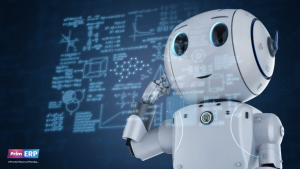Top 5 Healthcare Employment Trends Revolutionizing the Industry in 2024

The healthcare industry is rapidly evolving due to new technologies and innovations, leading to significant changes for both healthcare professionals and patients. These advancements are driving shifts in employment trends, resulting in a growing demand for specialized skills and expertise. Here are five major trends that are currently impacting healthcare employment for job seekers and employers alike.
Technological advancements in healthcare are creating a surge in demand for professionals skilled in navigating and applying these new technologies. From telemedicine to electronic health records (EHR) systems, the need for tech-savvy individuals in healthcare has never been higher. This trend is driving an increase in job openings and the development of new skill sets, making healthcare technology a dynamic and exciting sector for employment opportunities.
The COVID-19 pandemic has intensified the spotlight on burnout and stress among healthcare professionals. With ongoing challenges, the industry is prioritizing strategies to mitigate these issues. Employers are focusing on improving work-life balance and providing better support structures to attract and retain skilled employees. This shift aims to create a more sustainable and supportive working environment, essential for maintaining a resilient healthcare workforce.
Transformations in Patient Care and Accessibility
The healthcare sector is undergoing significant transformations in patient care and service accessibility. Key drivers of these changes include technological advancements and evolving patient preferences, which are shaping current healthcare employment trends.
Telehealth and Telemedicine: Revolutionizing Remote Patient Care
Telehealth and telemedicine have revolutionized patient care by offering remote medical consultations, diagnoses, and treatments. This technological shift provides unmatched convenience for patients and proved indispensable during the COVID-19 pandemic, helping maintain patient care while minimizing the risk of virus transmission.
Home-Based Care: The Rise of At-Home Diagnostics and Treatment
Home-based care is emerging as a preferred option for many patients, offering the convenience and safety of receiving medical treatment at home. This trend not only reduces the need for travel to healthcare facilities but also proves to be more cost-effective. Additionally, home-based care allows for personalized treatment plans tailored to patients’ diverse healthcare needs.
Innovative Care Delivery Models Transforming Healthcare
Integrated Care: By merging primary, secondary, and tertiary care with mental health and social care services, integrated care models enhance efficiency and improve patient outcomes.
Patient-Centered Medical Homes (PCMHs): PCMHs offer patients comprehensive, coordinated care tailored to their long-term needs, emphasizing preventive measures and holistic health management.
Expanded Healthcare Access: To improve accessibility, more outpatient centers and clinics are being established, and services are being offered in non-traditional settings such as schools and workplaces. The healthcare sector is also collaborating with various organizations to address social determinants of health, including affordable housing and food security.
Enhanced Convenience and Patient Experience: With patients increasingly prioritizing convenience, healthcare providers are extending hours, offering online appointment scheduling, and providing virtual consultations. Additionally, there is a strong emphasis on ensuring a personalized, efficient, and positive patient experience.
These emerging care delivery models are set to drive healthcare employment opportunities and reshape the industry, ultimately benefiting both patients and providers.
Emerging Technological Trends in Healthcare
Artificial Intelligence and Machine Learning
Artificial Intelligence (AI) and Machine Learning (ML) are revolutionizing patient care. AI-powered robots are now performing surgical procedures with unmatched precision and accuracy. Furthermore, machine learning algorithms are expediting the drug discovery process, making it faster and more efficient. This technological advancement is paving the way for innovative treatments and improved patient outcomes.

Telemedicine and Virtual Care
Telemedicine and virtual care have become indispensable in modern healthcare, especially after the COVID-19 pandemic. These services provide patients with remote access to medical professionals, allowing for consultations and routine check-ups without the need for physical presence. This expansion has made healthcare more accessible, particularly for those in remote areas. Telemedicine also alleviates the pressure on healthcare facilities by enabling remote monitoring and management of chronic conditions.
The surge in telemedicine highlights the increasing demand for healthcare technology professionals, underscoring the need for experts who can integrate technology with healthcare to enhance patient care and streamline medical services.
The Rise of Wearable Devices and Personal Monitors in Healthcare
Wearable devices and personal monitors are revolutionizing the healthcare industry with their impressive growth and widespread adoption. From smartwatches and fitness trackers to specialized health monitoring equipment for conditions like blood pressure and glucose levels, these devices are becoming indispensable tools for both patients and healthcare professionals.
By offering real-time data, wearable technology enhances preventative care and personalized health management, empowering patients and healthcare providers with valuable insights into the patient’s well-being. The continuous advancements in wearable technology are set to play a pivotal role in the future of remote telehealth and virtual care services, enabling healthcare providers to monitor patients from a distance effectively.
Embrace the future of healthcare with wearable devices and personal monitors, driving innovation in patient care and health management.
The Pandemic’s Profound Impact on Healthcare Employment: Trends and Changes
The COVID-19 pandemic had a profound impact on healthcare employment. Initially, the sector witnessed a significant decline in jobs, but by October 2023, the healthcare industry had largely rebounded, adding 58,400 jobs in just one month. Despite this recovery, job distribution within the sector remains uneven.
Challenges and Stress on Healthcare Workers
The pandemic heightened pressure on doctors and nurses, leading to increased burnout and stress levels. This underscored the vital importance of staff engagement in healthcare. Hospitals faced additional challenges, exacerbated by an ongoing nursing shortage, which impacted patient care. Employment levels in elderly care and skilled nursing facilities remained particularly low.
Wage Increases in Response to Staffing Challenges
As hospitals grappled with increased demand and staffing issues during the pandemic, average hourly wages for hospital employees saw an 8.5% rise between February 2020 and August 2021. This trend is expected to continue, given the high demand for experienced healthcare workers.
Shifts in Patient Care Dynamics
The pandemic also altered the dynamics of hospital patient care. The severity of COVID-19 cases led to longer hospital stays and increased patient acuity, further intensifying the workload and stress on healthcare professionals. This shift significantly impacted their overall job satisfaction.
Surge in Healthcare Technology Adoption
The healthcare industry experienced a surge in the adoption and integration of healthcare technology during the pandemic. There was significant growth in healthcare tech jobs as the need for professionals skilled in data analytics, telemedicine, remote monitoring, and other tech-based solutions increased.
The healthcare sector’s response to the pandemic has highlighted the critical need for adaptive strategies to support and sustain the workforce while embracing technological advancements to improve patient care.
Evolution of Nursing and Medicine: Adapting to Modern Healthcare Needs
As the global population ages and technology advances, the fields of nursing and medicine are evolving to meet new challenges and opportunities. Key trends such as home-based care, personalized medicine, mental health, and preventive care, as well as a growing nursing shortage, are reshaping the healthcare landscape.
Aging Population and Home-Based Care
With an increasing number of older adults requiring healthcare services tailored to their specific needs, home-based care is becoming more prevalent, replacing traditional hospital-based care. Nurses play a crucial role in this transition, leveraging their expertise in assessment, management, and care coordination to deliver high-quality care for seniors. As a result, there is a growing demand for skilled nurses with experience in senior care within home-based settings.
Personalized Medicine
Personalized medicine involves tailoring medical treatments to individual patients based on their genetics, lifestyle, and environmental factors. To effectively integrate these innovative practices, nurses need additional training and resources. This approach enhances the ability of healthcare professionals to provide more precise and effective care.
Mental Health and Preventive Care
Nurses with specialized training in mental health and preventive care are uniquely positioned to intervene early and prevent mental health issues. Often the first point of contact for patients with mental health concerns, these nurses play a vital role in early detection and intervention, contributing to better patient outcomes.
Addressing the Nursing Shortage
The healthcare sector faces a significant nursing shortage, with the U.S. Bureau of Labor Statistics projecting a 9% growth in nursing employment from 2020 to 2030, adding approximately 276,800 new positions. Factors contributing to this shortage include the growing demand for healthcare services, an aging workforce, and limited capacity in nursing education programs.
Navigating the Future of Nursing and Medicine
The evolution of nursing and medicine highlights several key trends shaping the healthcare employment landscape. Home-based care, personalized medicine, mental health and preventive care, and the nursing shortage require increased training and resources for nurses to adapt and thrive. As healthcare continues to evolve, the role of nurses and other healthcare professionals will become increasingly critical in delivering quality care across various settings.
Shaping the Future: Opportunities and Shifts in the Healthcare Workforce
The healthcare industry is evolving rapidly, offering new opportunities and necessitating workforce adaptation to meet changing needs. Providers face numerous challenges while the workforce embraces innovative roles and careers.

Focus on Prevention and Population Health
A significant trend driving industry transformation is the increasing emphasis on prevention and population health. This shift has sparked a demand for professionals specializing in preventive care, significantly influencing healthcare employment trends.
Creating a Culture of Care
Building a culture of care within the healthcare sector is becoming more crucial. Key strategies include supporting staff well-being, offering fair compensation, promoting diversity, and fostering patient-centric work environments. Human Resources (HR) plays a vital role in these efforts, ensuring a healthy and efficient workplace.
Rise of Healthcare Tech Jobs
The integration of technology into healthcare is creating a surge in tech-related jobs. Tailored medication, virtual care, and advancements in health informatics, telemedicine, and artificial intelligence are driving demand for skilled professionals in these tech-driven fields.
Importance of Upskilling
Upskilling is emerging as a highly sought-after benefit in the healthcare industry. As providers strive to remain competitive in a dynamic market, enhancing workforce skills is essential for future success.
Emphasis on Cultural Competency
The growing diversity of patient populations is shaping the healthcare workforce. Providers must emphasize cultural competency and multilingual capabilities to effectively cater to diverse patient needs.
Embracing Change and Innovation
The healthcare industry is undergoing rapid changes, presenting exciting opportunities and altering workforce dynamics. Leveraging these trends in innovation and employment will be crucial for providers and employees to shape the future of healthcare effectively.
Empowering Healthcare's Future with Primoris Systems
In the dynamic world of healthcare, staying ahead of employment trends is crucial. Primoris Systems provides advanced human resources tools designed specifically for healthcare employers, enabling them to align with industry demands and thrive in a constantly evolving sector.
Enhancing Employee Engagement:
Primoris Systems offers a robust platform for healthcare organizations to implement wellness and engagement programs. These tools help employers foster work-life balance, mental health support, and employee recognition initiatives, cultivating a supportive and productive work culture.
Streamlining Recruitment for Tech-Driven Healthcare Roles:
As the demand for tech-savvy healthcare professionals grows, Primoris Systems’ recruitment solutions simplify the process of attracting, hiring, and onboarding candidates with the required technical expertise. Our tools efficiently manage application influx, ensuring you identify the right talent for these specialized roles.
Supporting Remote Work and Telemedicine:
With the rise of telehealth, Primoris Systems’ solutions provide the necessary infrastructure for healthcare providers to manage remote teams effectively. Our tools ensure compliance with healthcare regulations and facilitate seamless communication among healthcare professionals, whether they are in the field or working remotely.
Optimize your healthcare HR processes with Primoris Systems, and stay ahead of industry trends to ensure your organization’s success.




